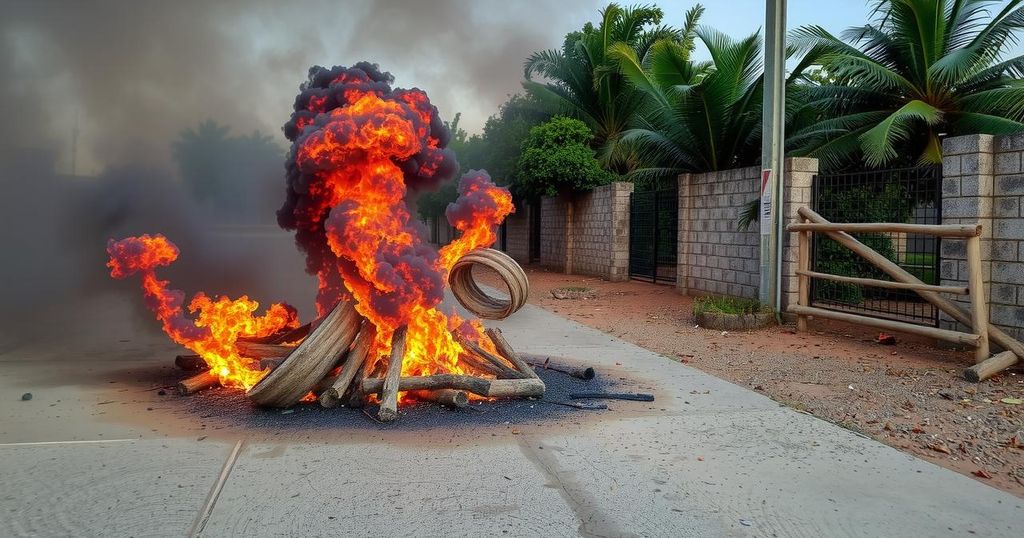Understanding the Unrest in Mozambique: A Crisis Unfolds

Mozambique is facing its worst civil unrest since the end of the civil war, triggered by violence related to a disputed presidential election. Since the Supreme Court upheld controversial election results favoring the ruling Frelimo party, protests have escalated, resulting in over 250 deaths and severe social upheaval, with activists indicating a transition from protest to revolt. This turmoil threatens both national and regional stability in southern Africa.
Mozambique is currently experiencing its most severe election-related violence since the conclusion of its civil war over three decades ago. Following the Supreme Court’s endorsement of a contested presidential election result favoring the ruling party, Frelimo, widespread protests erupted on December 23. Civil society organizations report that approximately 125 individuals have lost their lives in these protests, contributing to a total of 252 deaths since the election in October. Dissatisfaction with the electoral process has led to significant public unrest, with protesters accusing Frelimo of electoral fraud. These protests have intensified, resulting in vandalism, looting, and the establishment of makeshift roadblocks by agitated citizens. Cídia Chissungo, a prominent Mozambican human rights activist, encapsulates the situation, stating that it has escalated beyond mere protest into a full-fledged social upheaval.
The unrest in Mozambique is deeply rooted in the aftermath of the recent presidential election, which has highlighted long-standing grievances regarding government transparency and accountability. Following decades of war, Mozambique’s transition to democracy has been marred by allegations of electoral fraud, particularly against the dominant Frelimo party. The current protests reflect a culmination of frustrations among citizens who feel disenfranchised and robbed of their democratic rights, emphasizing the need for political reform and justice in electoral processes. Mozambique’s geopolitical significance, as a vital port nation, further underscores the importance of stability in the region, making the current strife not only a local concern but also one with potential ramifications across southern Africa and beyond.
In conclusion, the ongoing unrest in Mozambique stems from a deep-rooted dissatisfaction with the electoral process, culminating in violent protests and significant loss of life. The situation poses serious implications not only for the nation but also for regional stability in southern Africa. As citizens demand accountability and justice from their leaders, the international community watches closely, recognizing that Mozambique’s stability is critical for broader geopolitical dynamics. The calls from opposition leaders for nationwide solidarity signal that this unrest may continue until meaningful changes are made in the political landscape.
Original Source: www.nytimes.com






